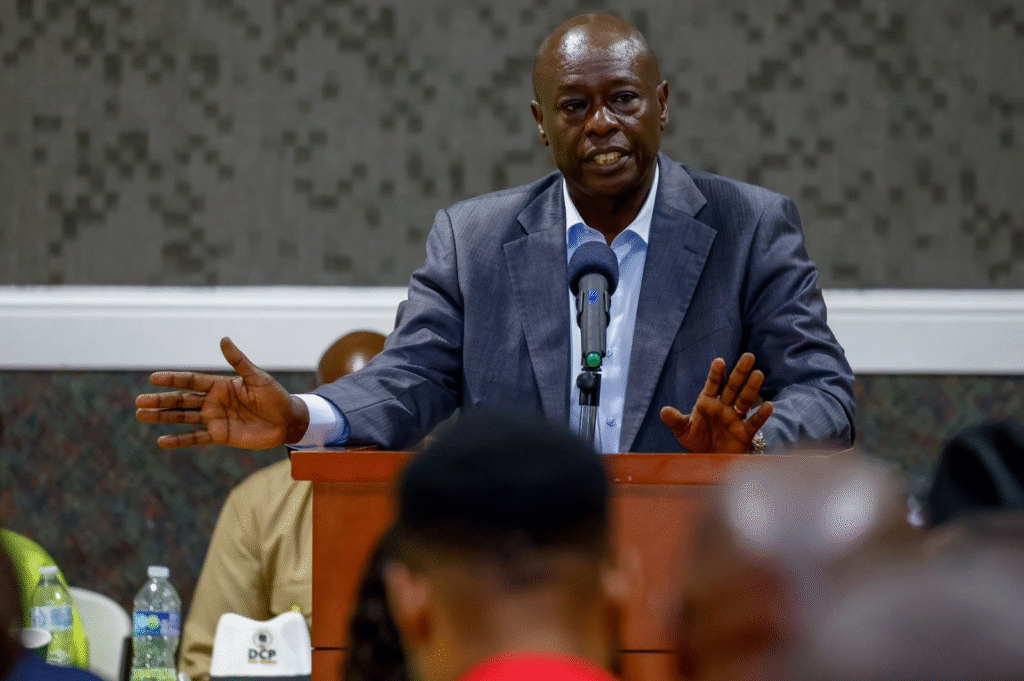Former Deputy President Rigathi Gachagua has kicked off a whirlwind tour of the United States, describing it as an opportunity to engage with Kenyans living abroad.
According to him, the two-month visit will also involve meetings with key international stakeholders. He is accompanied by his wife, Pastor Dorcas Rigathi.
While the tour is officially billed as an outreach to the Kenyan diaspora, Gachagua’s rhetoric and behavior suggest otherwise. What has emerged so far is a familiar pattern: the former deputy president appears unchanged, continuing to advance divisive and ethnically charged narratives even on foreign soil.
A striking example came during a town hall meeting in Seattle. Instead of addressing the diverse audience in a unifying tone, Gachagua reverted to his native Kikuyu language and echoed the same sentiments he has long promoted back home-messages centered on ethnic loyalty and exclusion.
So, what exactly has changed since his ouster from the Kenya Kwanza administration? Very little, it seems. Gachagua continues to be the same political figure known for pushing the ‘shareholders’ concept, the ‘us versus them’ ideology, and the infamous ‘our people’ agenda.
The saying goes, “a leopard doesn’t change its spots” and Gachagua seems determined to prove it true. As his tour proceeds through other cities including Dallas, California, Boston, and Baltimore expect more of the same. He has consistently spoken out when individuals from the Mount Kenya region are dropped from government positions, yet he remains conspicuously silent when the same happens to leaders from other communities.

Gachagua has maintained his stance as a champion of ethnic identity since his impeachment in October 2024. Despite rebukes from political rivals and institutions such as the National Cohesion and Integration Commission (NCIC), he shows no signs of changing course. Even warnings about the dangers of tribal animosity in the lead-up to the 2027 general elections appear to fall on deaf ears.
The same man who claims to defend the interests of the Mount Kenya region often ends up alienating others through his rhetoric. He seems to expect Kenyans both at home and abroad to turn a blind eye as he sows division, threatening the very fabric of national unity that Kenya’s democracy so desperately needs.
While Gachagua might argue that he is safeguarding his community’s rights, many observers warn that his continued tribal appeals risk reversing the democratic gains the country has made. His actions reflect not only a failure to evolve as a leader but also a willingness to prioritize political survival over national cohesion.
Indeed, his track record speaks for itself. In June last year, Kikuyu influencers—including gospel artist Ngaruiya Junior publicly distanced themselves from Gachagua, accusing him of fueling ethnic division and betraying previous unity efforts. So, as Gachagua continues his so-called ‘State of the Nation’ address to Kenyans abroad, one must ask: what kind of unity is he championing when his words often serve to divide? Kenyans both at home and in the diaspora must remain vigilant.
The virus of negative ethnicity must be rejected, and divisive politics must be confronted head-on if the country is to move forward in unity.







